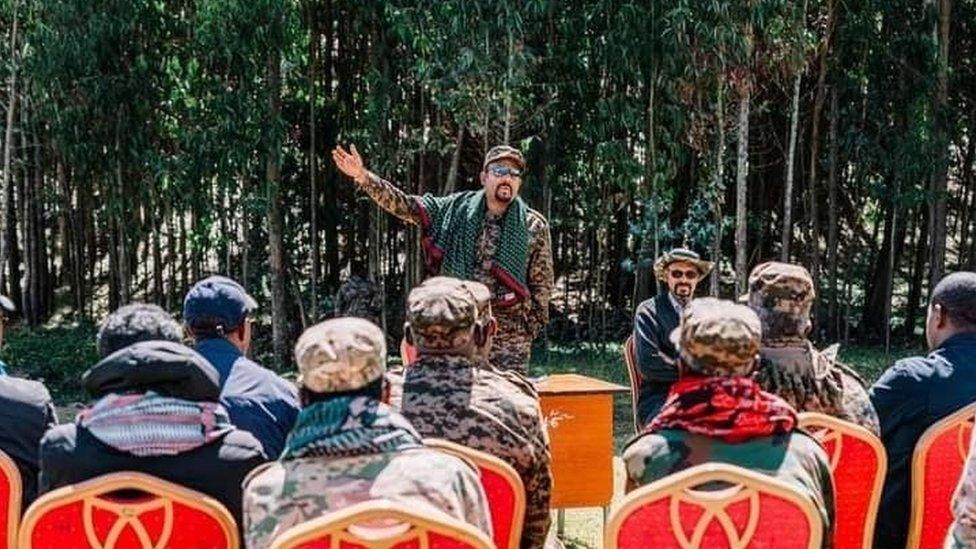Ethiopia's Tigray conflict: Lalibela retaken - government
- Published

The rock-hewn churches of Lalibela are a Unesco world heritage site
Ethiopian troops have recaptured the historic town of Lalibela from Tigrayan rebels, the government has said.
This is the latest victory claimed by the government since Prime Minister Abiy Ahmed went to the front lines last week to lead the fight-back.
The Tigray People's Liberation Front (TPLF) said it had made a "strategic withdrawal" from certain areas.
Lalibela, famous for its rock-hewn churches, was captured by the rebels in August.
It is a Unesco world heritage site in Ethiopia's Amhara region, and was a popular tourist destination before the civil war broke out in Ethiopia last year.
The conflict started in the northern Tigray region, and later engulfed other parts of Ethiopia as the TPLF launched an offensive to reach Addis Ababa in the south and the border with Djibouti in the east, which is crucial for getting supplies to landlocked Ethiopia.
Fears of the rebels advancing on Addis Ababa led several countries, including the US and UK, to urge their citizens to leave Ethiopia last month.
Earlier on Wednesday, government spokesman Legesse Tulu was quoted by state media as saying the military was also confident of retaking the strategic city of Dessie "in a short period of time".
The TPLF captured Dessie last month, in what was seen as a major blow to the government as the city leads to both Addis Ababa and the border with Djibouti.
Other towns retaken from the rebels included Shewa Robit, about 220km (135 miles) from Addis Ababa, the government said.
State-linked TV aired footage of Mr Abiy on Tuesday in military jungle fatigues, scanning the horizon with binoculars.
"The enemy is defeated. Our remaining task is to rout the enemy and destroy them," he told soldiers sitting under trees.

Prime Minister Abiy Ahmed has gone to the war front to rally his troops
Last week, TPLF leader Debretsion Gebremichael wrote to the UN, raising concerns about drone strikes against civilians.
Ethiopia had received Chinese drones, as well as weapons from Iran, Turkey and the United Arab Emirates (UAE), Mr Debretsion said.
There has not been any response to his claims.
China's Foreign Minister Wang Yi is currently visiting Ethiopia. He is expected to meet Deputy Prime Minister Demeke Mekonnen, who has taken charge of the day-to-day running of government while Mr Abiy is on the battlefield.
China had opposed foreign "meddling" in Ethiopia as Mr Abiy's government came under pressure from the US and some European countries over reports of human rights abuses during the civil war.
How Ethiopia's war is hampering humanitarian efforts
Meanwhile, the Ethiopia government has accused Twitter of targeting accounts that are critical of the rebels.
Twitter has said it remains "neutral to political identity and ideology".
Last month, Twitter temporarily removed its trends function in Ethiopia, citing ''the imminent threat of physical harm''.
Facebook removed a post from Mr Abiy, saying it violated its policies against inciting violence.
